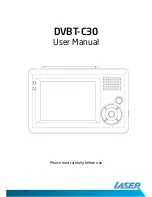
Safety rules for operation and maintenance
Daily checks
Make it a habit to give the engine and engine bay a
visual check before starting
(before the engine is
started
) and after operation (
once the engine has
stopped
). This helps you to quickly discover whether
any leakage of fuel, coolant, oil or any other abnormal
event has happened, or is about to happen.
Starting lock
If the instrument panel does not have a key switch,
the engine room must be lockable, to prevent unau-
thorized persons from starting the engine. Alterna-
tively, a lockable main switch can be used.
Carbon monoxide poisoning
Only start the engine in a well ventilated area. When
operated in a confined space, exhaust fumes and
crankcase gases must be ventilated.
Hot surfaces and fluids
A hot engine always increases the risk for burns. Be
on your guard against hot surfaces: the exhaust mani-
fold, turbocharger, oil pan, charge air pipe, starting
heater, hot coolant and hot lubricating oil in pipes,
hoses etc.
Cooling System
Avoid opening the coolant filling cap when the engine
is hot. Steam or hot coolant can spray out and cause
scalding, at the same time as the pressure built up is
lost.
If the filler cap, coolant hose etc., still has to be opened
or removed when the engine is hot, undo the filler cap
slowly and carefully, to let the pressure out before
removing the filler cap completely and starting work.
Note that the coolant can still be hot and cause scald-
ing.
Fuel filling
There is always a risk of fire and explosion during fuel
filling. Smoking is forbidden, and the engine should be
stopped.
Never overfill the tank. Shut the tank cap securely.
Only use the fuel recommended in the instruction
book. The wrong grade of fuel can cause serious mal-
functions, power loss or stop the engine.
Fuel and lubrication oils
Always protect your hands when searching for leaks.
Fluids which leak under pressure can force their way
into body tissue and cause severe injury. There is a
risk of blood poisoning (septicemia).
Only use the fuel recommended in the Operators
Manual. The wrong grade of fuel can cause malfunc-
tions or stop the engine. In a diesel engine, it can also
cause the injection pump to seize and the engine will
over-rev, entailing a strong risk of personal injury and
machinery damage.
Always cover the alternator if it is located beneath the
fuel filters. Fuel spillage can damage the alternator.
Always change the oil, oil filter and fuel filter at the
specified intervals.
Operation
The engine must not be operated in environments
which contain explosive media since none of the elec-
trical and mechanical components are explosion
proof.
Going close to a running engine is a safety risk. Hair,
fingers, loose clothes, or dropped tools can catch on
rotating components and cause severe injury.
When engines are supplied without touch guards, all
rotating components and hot surfaces must be pro-
tected after installation in their application, if neces-
sary for personal safety.
Safety Information
4
7748681 12-2011
132/297
Summary of Contents for R570U
Page 1: ...User and maintenance manual for generating sets R570U 33504081501NE_1_1 ...
Page 15: ...Alternator Cabinet Figure 1 3 Examples of identification plates 13 297 ...
Page 18: ...Sockets voltage 208 120V 16 297 ...
Page 125: ...9 Appendix 9 1 Appendix A Engine user and maintenance manual 123 297 ...
Page 126: ...124 297 ...
Page 128: ...126 297 ...
Page 129: ...OPERATOR S MANUAL Generating set and industrial engines 16 liter EMS 2 127 297 ...
Page 159: ...157 297 ...
Page 218: ...216 297 ...
Page 220: ...218 297 ...
Page 222: ...7748681 English 12 2011 220 297 ...
Page 223: ...9 2 Appendix B Alternator user and maintenance manual 221 297 ...
Page 224: ...222 297 ...
Page 226: ...224 297 ...
Page 250: ...www leroy somer com 248 297 ...
Page 261: ...Installation and maintenance R250 A V R 4067 en 2009 05 b LEROY SOMER 11 259 297 ...
Page 281: ...2012 03 e LEROY SOMER 19 Installation and maintenance R 450 AVRs 4531 en 279 297 ...
Page 282: ...www leroy somer com 280 297 ...
















































